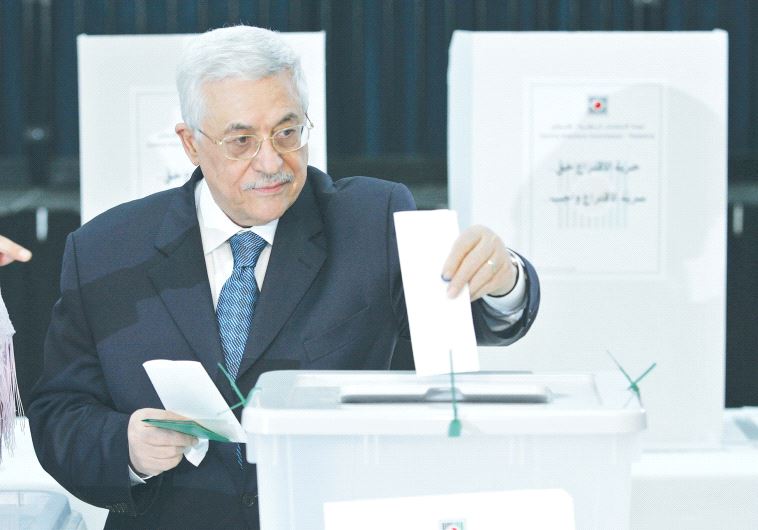JPost Editorial: Voting for peace
Prime Minister Benjamin Netanyahu reiterated his willingness to meet Abbas anywhere and at any time. All Abbas has to do is say yes.
 alestinian Authority President Mahmoud Abbas casts his vote at PA headquarters in Ramallah in 2005
alestinian Authority President Mahmoud Abbas casts his vote at PA headquarters in Ramallah in 2005